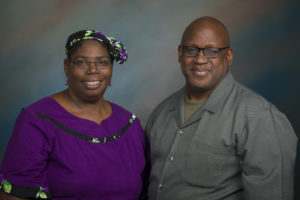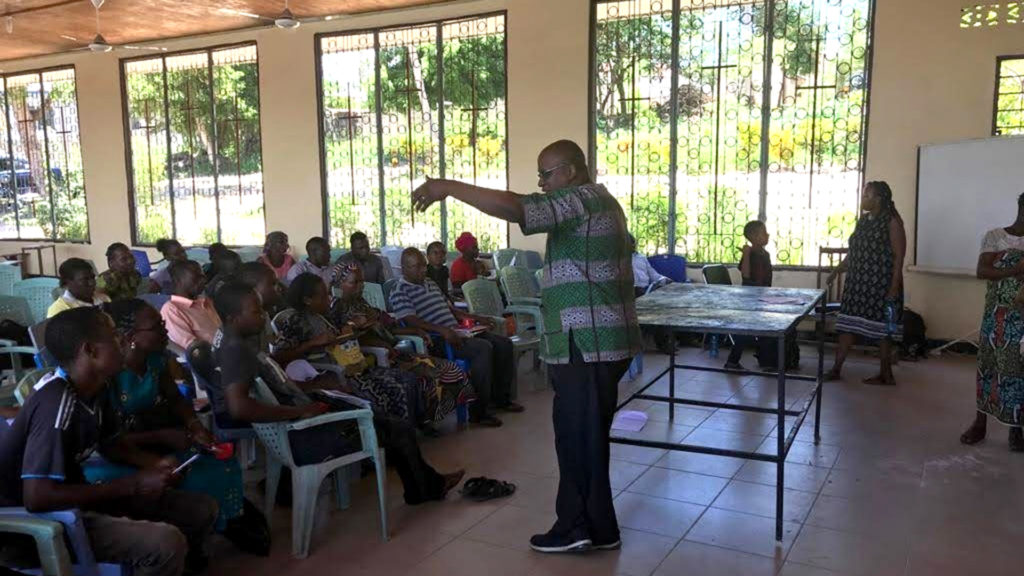Editor’s note: The International Mission Board recently initiated Church Connections to facilitate connections between IMB missionaries and churches who do not have direct contact with a missionary. Church Connections efforts began in 2020 with a pilot involving 10% of IMB’s missionaries. April 5, 2021 was the official launch of Church Connections, and 900 missionaries have since been assigned 22,000 churches to contact. It’s estimated that by the middle of 2022, every Southern Baptist church will receive a personal contact from a missionary.
 Often, when African American Southern Baptists picture missionaries, they think about the pictures of missionaries that they’ve seen — and few look like them.
Often, when African American Southern Baptists picture missionaries, they think about the pictures of missionaries that they’ve seen — and few look like them.
Many of our churches don’t associate International Mission Board missionaries with being African American, so they are pleasantly surprised when they meet us. Church Connections has allowed us to show African Americans they have a place and role to play in the missionary task.
When our churches see missionaries who look like them, they feel more represented. And what we tell them is, “There is a place for you. God is calling you; you can be a part of reaching the world, and He wants to use you and your church.”
African American Southern Baptists aren’t the only people who’ve been surprised to meet us. When we moved into our house in Tanzania, our neighbors wanted to know where the missionary was, and why Muslims moved in next door.
“I have lived here for 40 years, and no one like you has ever lived in this mission house,” a neighbor said.
Tanzanian Christians celebrated our arrival.
“Where are our other brothers and sisters? You’re the first ones that we’ve seen that looked like us,” Tanzanian Christians have asked us.
We still hear that, 20 years after we arrived in the country. African American missionaries have tremendous opportunities to make deep connections on the mission field.
Through Church Connections, we have the opportunity to help churches to think about what those opportunities might look like working with us in Dar es Salaam, the capital city, or working with the IMB in other countries.
Our churches are well-connected to one another, and forming connections with one church opens doors for connecting with other churches.
We’ve shared our experience going through the IMB application process and our journey to the mission field. We also share that the IMB works with people with pre-existing medical conditions, and we encourage church members to not count themselves out because of medical issues. Karen had some health issues, but that didn’t keep us from serving with the IMB overseas.
As we travel and speak at churches, we hope to lead others to follow in our footsteps.
We often share Revelation 7 — a multitude from every nation, tribe and tongue worshiping around the throne — and this resonates with pastors and congregants.
We desire to share the vision and to have more missionaries on the field so that we will see every tribe, every tongue around the throne. As we connect, that is what we are connecting them with, not just with us, but to the greater vision.
We have had the joy of connecting with St. Stephens Baptist Church in La Puente, California. The church has traveled to partner with us in our ministry in Tanzania as well as many other countries.
We talked to the pastor and offered to lead a small group through a study of Jeff Lewis’ God’s Heart for the Nations. A group of six to eight leaders in the church join us via Zoom for the study.
Our hope from the start of the Bible study was not only to share God’s heart for the nations but also that the Lord would lead one or two people to make a long-term commitment to missions.
Our work with St. Stephens is exciting because the church has already been involved in mission trips to minister with us in Tanzania, and now, people in the church are considering short-term, mid-term and longer-term trips and programs. We are praying for a long-term missionary to step out in faith from the congregation at St. Stephens.
Every week during the study we pray for unreached and unengaged people groups, and we’ve promoted the Sub-Saharan African affinity’s goal of reaching 55 unengaged, unreached people groups with the gospel by the year 2025.
One woman in the group made a firm commitment to pray and asked for more information and resources. She is in her late 70s and came to Tanzania on a short-term mission trip.
She told us, “I’m learning so much, and now I’m looking at these verses and I see how they direct me to pray for the nations. I’m blessed to be a blessing to the nations, to the world, as God wants every tribe, every tongue, every people around the throne.”
She has been a Christian for a long time, but the spark of seeing the gospel reach everybody is being ignited in her heart and in the hearts of others in this study group.
“I cannot look at all the different tribes and peoples the same way that I have,” she told us.
In one of our studies, we learned about a people group from China, and it inspired one of the group members to talk to a coworker from China.
We told the small group that even if they never leave the U.S., they can still get a map out and pray.

IMB missionary Richard Lee teaches in Dar es Salaam, Tanzania.
Some of the churches we’ve connected with through Church Connections in California and Nevada have never had a missionary contact them.
We have had the privilege of connecting with a church in Las Vegas and were able to answer questions about financial gifts to the Lottie Moon Christmas Offering ® and Cooperative Program.
“Does our offering go to support you?” a pastor asked us.
We tell them that every penny they give to the LMCO goes to support us and other IMB missionaries. We share how their giving helped us when we had car problems, how it allowed us to have books sent to us for our daughter who had learning difficulties and how it bought Bibles for us to give to new believers.
Their giving went up after we shared. Why? Because now have a personal connection. They connected Lottie Moon with us.
It is beneficial for every missionary to connect with a church for that reason alone, so church members and pastors can see where their money is going — that it’s not going to sit in a pile — and know that somebody is being directly blessed by it. Now, they can say, “I have a part in that missionary’s work.”
Our message to African American Southern Baptists is, “You can be a part of reaching the world. God called us. He can use you and your church in mighty ways.”

